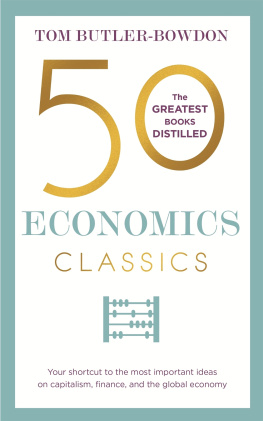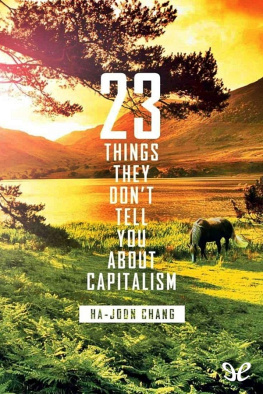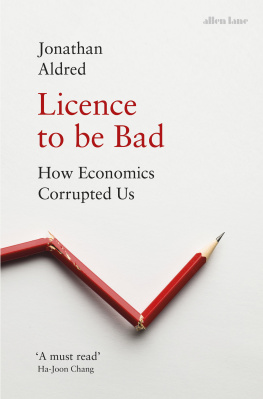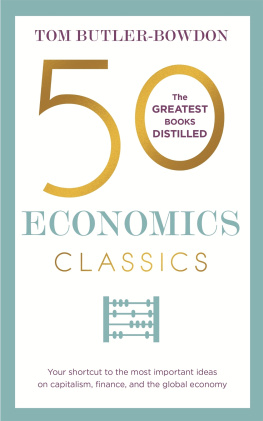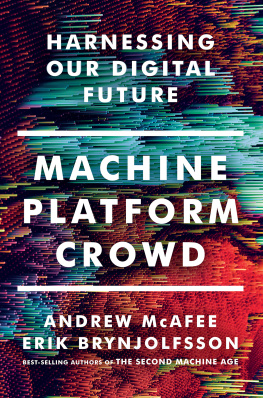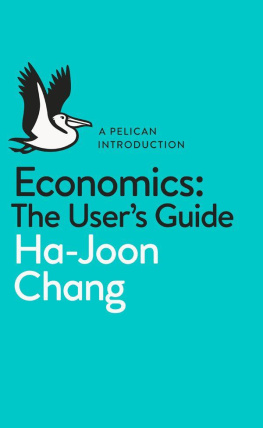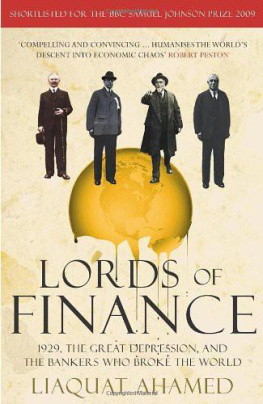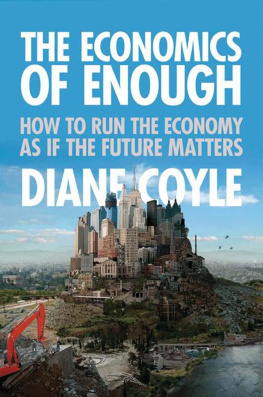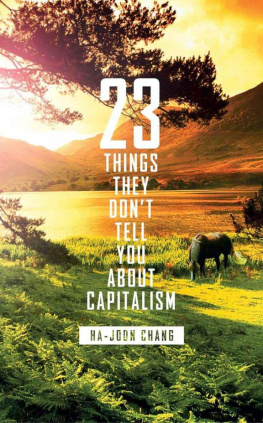Contents
Fixed ideas in economics can have disastrous results
Entrepreneurs are the engines of growth and must be valued
The most important investment we ever make is in ourselves
The most successful investing strategy is also the easiest
Technological revolutions must allow for the advance of everyone
Many nations succeeded by bucking the rules of orthodox economics
Why firms exist; the role of transaction costs in economic life
How we measure economic output has consequences for people and nations
Success comes from taking management and ideas seriously
Finance is not evil, it built the modern world
Free markets, not government, protect the individual and ensure quality
Its governments job to stop speculative frenzies ruining the real economy
The best and fairest way to ensure opportunity is a tax on land
Living standards keep rising, but the greatest gains have already happened
We grow in wealth through long-term investing, not speculating
Societies prosper when they give up planning and control, and allow decentralization of knowledge
Consumers have many options to get what they want
Cities have always been, and always will be, the drivers of wealth
To achieve social goals like full employment, governments must actively manage the economy
Neoliberal economic programs have proved a disaster for many developing countries
The postwar consensus on how to grow an economy has been hijacked by ideology
Economics is not a moral science, more an observation of how incentives work
Modern finance was meant to minimize risk, but it has only increased dangers
The world became wealthy thanks to an idea: entrepreneurs and merchants are not so bad after all
The worlds finite resources cant cope with an increasing population
To understand people, watch their habits of earning, saving and investing
The interests of labor and capital are perennially in conflict
Rather than creating equilibrium, capitalism is inherently unstable
Economics has laws which no person, society or government can escape
Countries grow and get rich by creating industries, not by addiction to aid
To stay healthy, common resources like air, water and forests need to be managed in novel ways
The scales of wealth are tipping towards capital; if inequality widens there will be social upheaval
Markets must serve society, not the other way around
Competition and industry clusters make a rich nation
Capitalism is the most moral form of political economy
A free-trading world will see each nation fulfil its potential
Globalization agendas are often floored by national politics
A combination of classical and Keynesian ideas creates the best-performing economies
A new economics must arise which takes more account of people than output
No form of political economy matches the dynamism of capitalism and its process of creative destruction
Small behaviors and choices of individuals ultimately produce tipping points with major effects
People starve not because there isnt enough food, but because economic circumstances suddenly change
Psychology, not fundamental values, drives markets
The world will never run out of resources, because it is the human mind that drives advance, not capital or materials
The wealth of a nation is that of its people, not its government
Clear property rights are the basis of stability and prosperity
Europes failed currency and its ideological underpinnings
How psychology has transformed the economics discipline
The great goal of capitalist life is not to have to workor to take on the appearance of not needing to
Culture and religion are the most overlooked ingredients of economic success

The Spirit of Capitalism
Philosophies of the system in which most of us live
Milton Friedman Capitalism and Freedom
Friedrich Hayek The Use of Knowledge in Society
Deirdre McCloskey Bourgeois Equality
Karl Marx Capital
Ludwig von Mises Human Action
Karl Polanyi The Great Transformation
Ayn Rand Capitalism: The Unknown Ideal
Joseph Schumpeter Capitalism, Socialism, and Democracy
Julian Simon The Ultimate Resource 2
Adam Smith The Wealth of Nations
Thorstein Veblen The Theory of the Leisure Class
Max Weber The Protestant Ethic and the Spirit of Capitalism
Growth & Development
Recipes for a more prosperous world
William Baumol The Microtheory of Innovative Entrepreneurship
Gary Becker Human Capital
Ha-Joon Chang 23 Things They Dont Tell You About Capitalism
Peter Drucker Innovation and Entrepreneurship
Robert J. Gordon The Rise and Fall of American Growth
Jane Jacobs The Economy of Cities
Thomas Malthus AnEssay on the Principle of Population
Dambisa Moyo Dead Aid
Michael E. Porter The Competitive Advantage of Nations
David Ricardo Principles of Political Economy and Taxation
E. F. Schumacher Small Is Beautiful
Hernando de Soto The Mystery of Capital
Adventures in Money & Finance
Booms, busts, and getting rich slowly
Liaquat Ahamed Lords of Finance
John Bogle The Little Book of Common Sense Investing
Niall Ferguson The Ascent of Money
J. K. Galbraith The Great Crash 1929
Benjamin Graham The Intelligent Investor
Michael Lewis The Big Short
Hyman Minsky Stabilizing An Unstable Economy
Robert Shiller Irrational Exuberance
Joseph Stiglitz The Euro
Government, Markets & the Economy
Citizens, not just consumers and producers
Erik Brynjolfsson & Andrew McAfee The Second Machine Age
Ronald Coase The Firm, the Market and the Law
Diane Coyle GDP: A Brief But Affectionate History
Henry George Progress and Poverty
John Maynard Keynes The General Theory of Employment, Interest, and Money
Naomi Klein The Shock Doctrine
Paul Krugman The Conscience of a Liberal
Alfred Marshall Principles of Economics
Thomas Piketty Capital in the Twenty-First Century
Dani Rodrik The Globalization Paradox
Paul Samuelson Economics
Amartya Sen Poverty and Famines
Behavioral Economics
An economics for the real world

